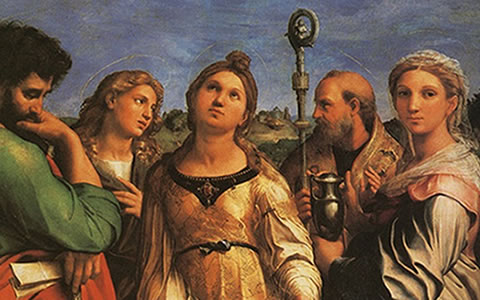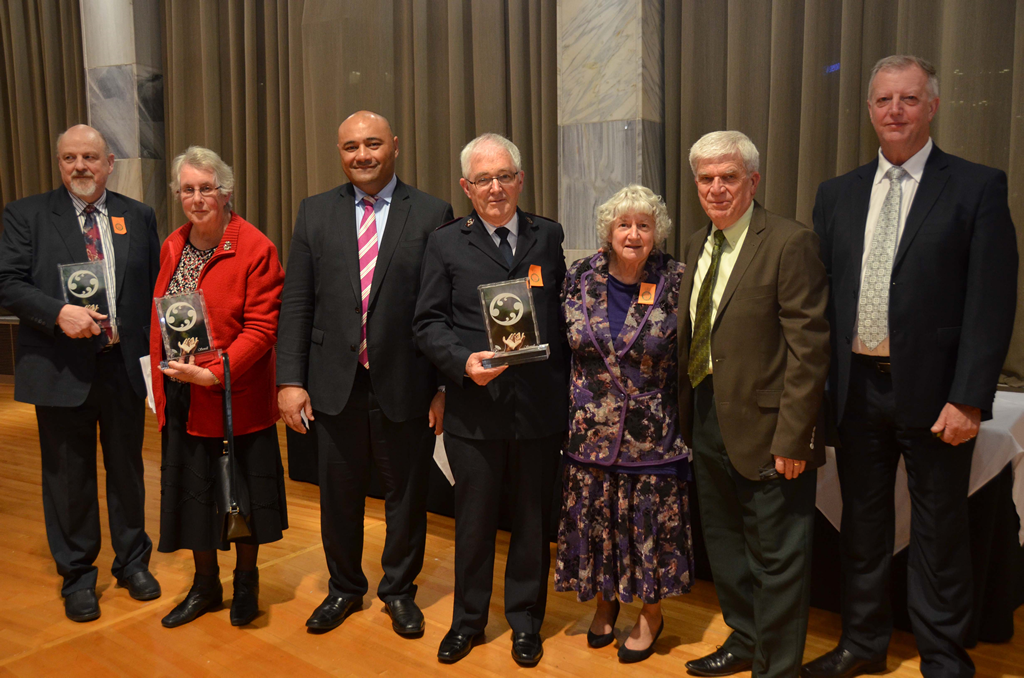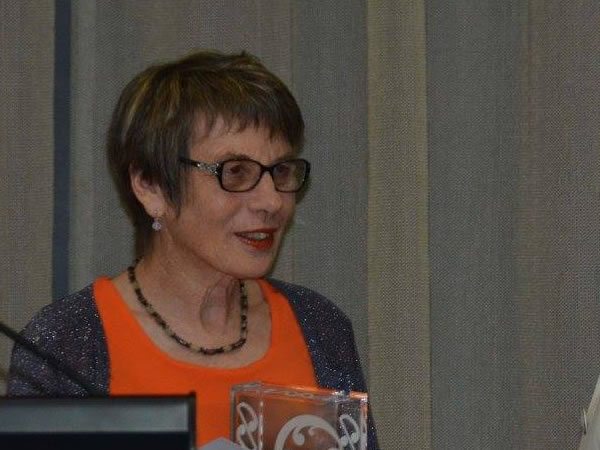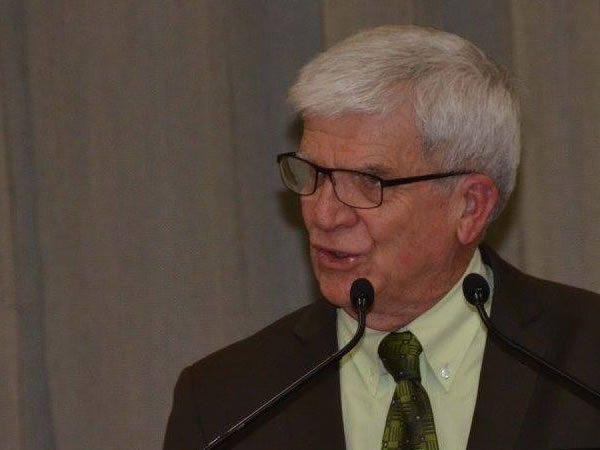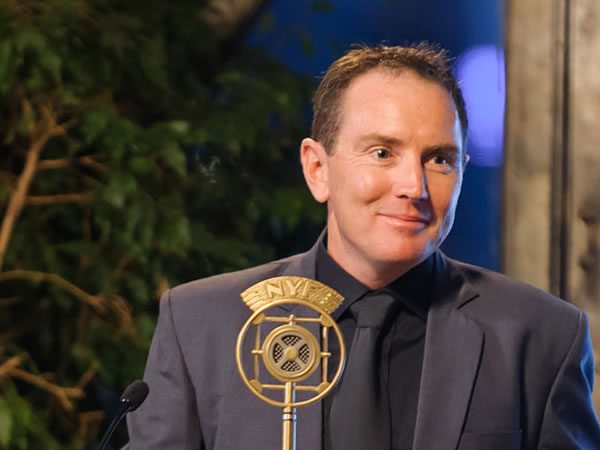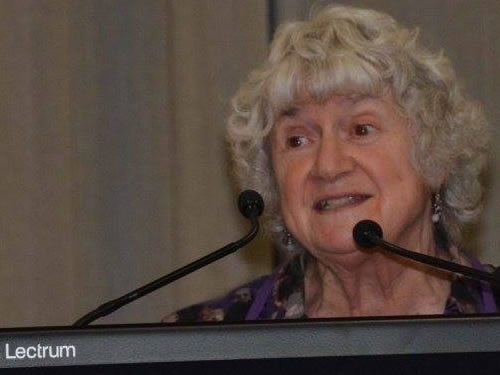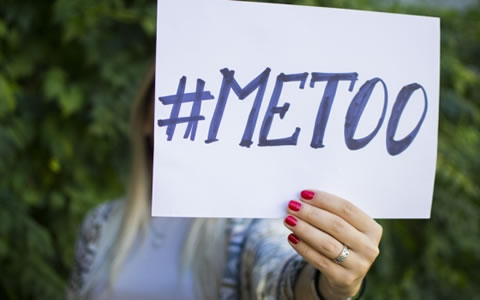
by NZCN Team | 27 Oct , 2017 | FOCUS, Value of Life, Women as One
Have you seen the social media hashtag #metoo? It seems to have sprung up everywhere since American actor, Alyssa Milano tweeted:
Me too.
Suggested by a friend: ‘If all the women who have been sexually harassed or assaulted wrote “Me too” as a status, we might give people a sense of the magnitude of the problem.’
Like thousands of other women around the world, I responded. Me too.
Sadly, I wasn’t surprised when several my friends and relatives did the same. But this particular post captures the heart of what happens when someone allows Jesus to intervene.
On behalf of so many others, thank you Lyn, for giving me permission to share it here.

Me too. #metoo
I’m not posting this just so people can be aware of how big the problem of sexual harrassment/assault is. Yes it’s important to know the problem exists and how widespread it is. Yes it’s important that we speak up and do all we can to stop it.
But I’m posting for those who have had this happen to them – it’s important to know that your life doesn’t have to be forever defined by what happened. How do I know because I’ve been there. I was abused for many years by family members. What happened was real, horrific to go through and wrong on so many levels.
But what happened to me and to you does not have to define who you are; only you get to choose what defines you. You are the only one who can choose whether your identity is bound to what happened or you can choose whether your identity is found in who you are apart from that event or events. Your identity is not found in being “a victim of…” Your identity is found in who you are in your personality and character – are you honest, funny, kind, loving, giving, etc – that’s who you are, that’s your identity!
If you need help in processing what you’ve been through then please get help, don’t feel you are alone or have to go through this on your own. There are many good counsellors out there who are experienced in helping people and giving them the skills needed to move beyond this. Can I also suggest that there is true healing to be found – in the one who bore our griefs and sorrows in himself – Jesus. I know some of you will not agree with me speaking about Jesus but for myself I have found that as I have allowed him to bring comfort and healing that has been beyond mere learning how to cope, He has truly taken away all the sting and pain of the many years of abuse I suffered.
Remember – even though something horrific may have happened to you it doesn’t define you – you are still you, you are valued, loved and loveable, you are unique and precious and all of us need you to stand up and tell your story.
If you haven’t been through this yourself then please be aware that many have, please don’t stay silent – silence is part of what allows this hideous practice to continue.
If you’re a Christian then can I ask you – please reach out to those who are hurting and love them back to wholeness again. Grieve with those who grieve, pray with those who need prayer, and fight for those who can’t.
#metoo

Continuing on the #metoo theme for just a little longer. I am all too aware that sexual harassment and abuse is not confined to one sex only, it is not only women that are preyed upon; too many boys and young men are preyed upon by others (male and female) too.
Again I have seen this in my family growing up, some of my brothers were preyed upon by men who should have known better, who should have been the responsible adult yet whose sexual appetite ruled when their brain should have. As a result of the abuse we suffered as kids my family grew up having to deal with much brokenness, believing lies about ourselves, being tormented by memories and sometimes physical effects, wrong mindsets about who they were and with dysfunction in so many areas. Each of us responded differently but the trauma and pain is still evident for so many of us. And so the abuse continues – it did not end just because the physical part of it ended – it continues to have an effect in our family even today.
There are too many men who feel they cannot speak out for varying reasons – because their manhood would be questioned, they would be ashamed etc. So they live with brokenness and dysfunction, hoping no one finds out yet secretly hoping someone will recognise they need help.
As I said earlier I know of only one who bore our griefs and sorrows, taking them upon himself and in doing so made a way for us to be healed and that was Jesus. Can I ask, please if you need healing, consider reaching out and asking Jesus to bring you healing, he’s the only one I know who can.
Men – as I said in my earlier post today when I shared my personal story – even though something horrific may have happened to you it doesn’t need to define you – you are still you, you are valued, loved and loveable, you are unique and precious and all of us need you to stand up and tell your story.
If you haven’t been through this yourself then please be aware that many have, please don’t stay silent speak out against it; silence is part of what allows this hideous practice to continue.
If you’re a Christian then can I ask you – please reach out to those who are hurting and love them back to wholeness again. Grieve with those who grieve, pray with those who need prayer, and fight for those who can’t.
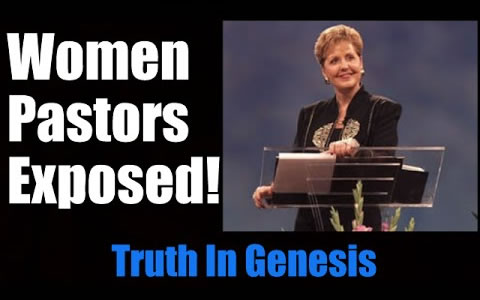
by Mark Keown | 31 Mar , 2017 | Women as One
Mark J Keown
New Testament lecturer at Laidlaw College, Auckland, New Zealand
This article was originally posted on Mark Keown’s blog. Please visit it for more articles written by Mark
Conversations with students and on Facebook suggest to me that there is a rise in concern over women in ministry; particularly, their exercising leadership and authority in a church and preaching/teaching groups including men. As such, I thought I would write a blog explaining why I passionately defend women in all forms of ministry in an uncluttered way. If people want to, it is not difficult to track down resources that go into such things in more detail. The positions I espouse are widely held among egalitarians where gender is concerned.
Before outlining the reasons, a few caveats are in order. What I will say does not deny that men and women are different, and that gender is a glorious gift. Some aspects of our genderness are set, e.g. where women are concerned, giving birth and breast-feeding. Gender is a creational gift. This blog accepts this premise but presents a list of reasons why I believe the Bible endorses that woman can lead churches and preach.
This issue is treated as a secondary theological issue by many. At one level this is correct—one is not saved on the basis of one’s view on this issue. However, for women who are called to ministry, this is essential to their identity in Christ, and it cannot be treated as a secondary issue. It is a primary issue where Christian identity is concerned. As such, I am passionate about the issue.
1/ The Creation-Fall narrative supports gender equality
In Genesis 1, both men and women are made in the image of God. They are jointly commissioned to fill the earth and rule over creation. Aside from the obvious fact that women will bear the children and feed them in the initial phase, there is no evidence of role differentiation in this. We are commissioned to rule together over creation.
In Genesis 2 woman is created as a ‘helper’ to the man. Some read this as a subordinate role for women. However, the Hebrew for ‘helper’ is ʿē·zěr. It is used sixteen times in the Old Testament, mostly of God as helper of Israel (Exod 18:4; Deut 33:7, 29; Pss 20:5; 70:5; 89:19; 121:1, 2; 124:8; 146:5; Hos 13:9). As such, there is nothing in this term to suggest subordination. Women and men are together to rule creation.
In Genesis 3 we read of the ‘Fall’ of humanity into sin. There is a range of consequences of human rebellion against God. The serpent which deceived men and women is cursed to slither on the ground. Women will experience pain in childbearing. Men will have a tough time farming. The other consequence is that men will rule over women. Some read this as God’s ideal. However, this is a result of the Fall, a result of human sin.
As such, the creation ideal is co-regency of men and women over creation and not gender discrimination of any sort.
2/ The Old Testament and Jewish literature gives evidence of women in leadership
In the period after entering the land of Canaan until the establishment of the Davidic monarchy, Israel was led by Judges. One of these Judges is a woman, Deborah. She is described as a prophetess and the wife of Lappidoth. It states in Judg 4:4 that she was ‘judging Israel at the time.’ There is no criticism of her doing this, it is simply stated. After seeking help from Barak to attack Sisera’s troops, she went with him, and the victory was gained. So, we have an example of a woman leading Israel in the OT, and there is no criticism of this here. In fact, she is a heroine of Israel’s story (see Judg 4 – 5).
While there are no other leaders of Israel who are women, there are significant other women. There is Esther who through great courage, brought about the deliverance of Israel from destruction. In the Apocrypha, there is Judith who did the same. There are also prophetesses; women who proclaim the word of the Lord to Israel. These include Miriam, the sister of Aaron, who sang the first song of the Scriptures after the Exodus (Exod 15:20). Huldah is another prophetess. A group of men including the priest Hilkiah went to her, and she proclaimed the word of the Lord to them, predicting the deliverance of the king from the forthcoming destruction of Jerusalem because of Israel’s idolatry. The men delivered her message back to the King at the time (2 Kings 22:14–18; 2 Chron 34:22–28). They were thus, taught by a woman the word of God. At the time of Christ, one such prophetess is mentioned in Luke 2:36, and she too was speaking of Christ ‘to all who were waiting for the redemption of Jerusalem.’ This would include her speaking to men of God’s redemption.
3/ Jesus gave no indication of limiting women regarding Christian leadership
There is no example of Jesus stating that a woman cannot be a Christian leader or preach his word. However, women travelled in his entourage from the beginning and were witnesses to his death (Mark 15:40–41; Luke 8:1–4).
It is claimed that the appointment of only men among the Twelve Apostles indicates Jesus was limiting women in ministry. However, this is flawed. None of the Twelve was a Gentile. Are we to argue that Jesus limited ministry only to Jews? It does not follow as simply as this. Interestingly, in Luke 10, we have Jesus appointing 70 (or 72) ‘others’ to go out in ministry. The pronoun ‘others’ is masculine and can be argued to include only men. However, the masculine in Hebrew and Greek is used inclusively of men and women. We cannot then be certain these 70/72 were all men. Did they include women? Did some of the group include the women of Luke 8? While this is an argument from silence, this silence cuts both ways. We cannot rule out there being some women among them. Nor can we be certain they were.
In Luke 10 we also have the incident at the home of Martha and Mary. Jesus is dining there. Martha is busy with the preparations for the meal, functioning as the ideal middle eastern hostess. Instead of joining her sorting out the hospitality, Mary sits at Jesus’ feet listening to him teach. In ancient terms, this is the position of a disciple. In Judaism, discipleship was limited to men. So, her decision was radical in two ways—first, she was taking up the position of a disciple, second, she was assuming the position only men were permitted to do. Jesus congratulates her choice. Now, we cannot push this to say she can be a leader; but she certainly was a disciple, and there is no limitation placed on her discipleship.
We also see that there were female disciples of Jesus in Mark 3, Matt 12, and Luke 8. Jesus is told that family members, concerned for his sanity, are outside and want to speak to him. Jesus looks around the room and says, ‘Who are my mother and brothers?’ He then looks around the room and says, ‘Here are my mother and my brothers. For whoever does the will of my Father in heaven is my brother and sister and mother.’ The inclusion of women in these sayings shows that there were disciples in the room who were clearly women.
We see Jesus’ attitude to women preaching to men in John 4. He encounters a sinful Samaritan woman. Jews would normally not associate with Samaritans, and a Jewish religious leader at the time would have nothing to do with a sinful one! She would be avoided for fear of ritual contamination and the need for purity rituals. Yet, Jesus asks her for a drink of water. They have an interesting conversation in which he prophetically identifies her as a sinful woman. She is blown away, and realises he is the long-awaited Messiah (the Samaritans called this figure, ‘the Taheb,’ meaning restorer). She runs to her town and tells the people she has found the Tabeb. They believe her and come out, and most of the town become followers of Jesus. She thus evangelises her town. She proclaims the good news. She is the first mass-evangelist in John’s story (aside from Jesus himself). There is no criticism of her for her act by the writer John, or from Jesus.
The other celebrated moment of female proclamation is after the resurrection. In the earliest Gospel, in Mark 16, the women are told by a young man (likely an angel) to take the news of Jesus’ resurrection to the men. This person is a messenger of God, so it is God telling women to preach to men. Matthew and Luke take up the same story (Matt 28; Luke 24), and they do so. This leads to the men rushing to the tomb and realising Jesus has risen. In John’s Gospel (Ch. 20), the same thing occurs, with Mary being the key figure telling the men that Jesus has risen. She is then the first to encounter Jesus after his resurrection. She is told to go to the men and tell them of his ascension. Here we have explicit examples of God and Jesus telling women to give witness to the resurrection and ascension of Jesus. They are to preach freely to both men and women.
Recent research has shown that where a name is mentioned in the Gospels, this person is likely an eyewitness to the event that is known to the writer of the Gospel and a likely source of the material. There are some women mentioned in the Gospels by name, and as such, they gave witness at gatherings within the church and perhaps beyond to their experiences of Jesus. They shared their stories as part of the proclamation of early Christians.
Jesus also exhibited a permissive rather than restrictive approach to people in ministry. Three Gospels tell of a situation when John comes to Jesus concerned that there was someone outside Jesus’ entourage casting out demons in his name. Jesus’ attitude was not to restrict this person but rather that the disciples recognise that this person is on the same side as they are and so, ‘do not stop him!’ One can apply this to the question of women in ministry. If one has reservations, rather than restrict, permit, as that person is serving Jesus and the Gospel (see Mark 9:38–40; Luke 9:49–50).
Jesus’ definition of ministry as service is also relevant. In Mark 10 (also Matt 20:20–28; Luke 22:24–30), when the disciples are concerned about who is the greatest and sitting at his right and left sides (positions of supreme honour), Jesus repudiates their attitude. He tells them not to lead as the Gentiles do with authoritarian, autocratic leadership. Rather, they are to serve as he himself came to serve and give his life for the world. Ministry is then service. As another biblical scholar says to the question of whether women can serve in all positions of ministry, ‘Ministry is service. Why would we stop someone serving Jesus.’ Such acts are autocratic and domineering. Rather, we would encourage them and support them.
So, all in all, Jesus was a radical where women are concerned. He allowed them to be disciples. He never forbade involvement. They may have been among the 70/72. There is no judgment on the Samaritan woman who evangelised her town. He chose women to be the first bearers of the gospel of the resurrection to men. He exhibited a permissive attitude to all who sought to minister in his name.
4/ There is indication of the freedom of women to lead in Acts
In Luke’s account of the growth and expansion of the Christian movement in Acts, there are no women appointed to positions of leadership. When the disciples replace Judas, it is with a man, Matthias (Acts 1:26). When they appoint seven leaders to care for the needs of Grecian widows in Acts 6, they are men. However, by their names, we can deduct that they were Gentiles. This demonstrates a movement from a purely Jewish leadership to Gentile converts. This is important because it shows that the church was breaking out of its cultural cocoon. One can argue the same where women in leadership are concerned, in regards to gender.
There is no limitation on women in Acts either. There are two key female figures referenced. The first is in Acts 16, Lydia. She is a God-worshiping Gentile woman who is one of a group of women who worship God outside the city gates (there are insufficient men to form a synagogue in the town and no evidence of male Jews). She is the first convert in Philippi and plays hostess to the Pauline team. As the only convert in Philippi with a knowledge of Judaism, she is likely the first leader of the church. Certainly, her home is its initial base.
Priscilla is a key figure in Paul’s letters (also Prisca). She is married to Aquila, and she and her husband are Roman Jewish Christians who come to Corinth when Claudius expelled the Jews from Rome in AD 49 (Acts 18:1–2). She is named before her husband on some occasions, likely indicating her prominence. She and Aquila teach Apollos the finer things of the Christian faith in Acts 18:24–28. The verbs used (invited, explained) are plurals, indicating that together, Priscilla and Aquila explained the way of God more adequately to Apollos. Hence, we have a woman teaching a Christian man matters of faith. She is also named with Aquila as a ‘co-worker,’ a term used by Paul in his letters to speak of those who serve in the gospel with him (Rom 16:3). This includes Philemon (Phlm 1) who is a church leader. She and Aquila are named as co-hosts of church gatherings (Rom 16:5; 1 Cor 16:19; 2 Tim 4:19). All indications are that she was an important Christian church leader who also taught men.
In Acts, we read of the appointment of elders in the churches (e.g. Acts 14:23; 20:17). The term is masculine, and so some assume these are all men. However, as noted previously, the masculine is used inclusively across the Bible and ancient world (and in many places today). We cannot be certain that these were only men.
So, in Acts, while men dominate the leadership of the church, there are notable exceptions, and it is not certain there were no women among the leaders of the many churches that sprang up.
5/ Paul limits women in leadership in two letters while in the other 11 there is no such limitation
While some scholars question the Pauline authorship of some of Paul’s letters, I see no reason to dispute that the thirteen letters ascribed to Paul are not his. In eleven of his letters, Paul places no restrictions on women in ministry. These include two letters written to churches Paul himself did not plant, Romans and Colossians. In Romans and Ephesians, he gives lists of gifts imparted by the Spirit, and places no limit on these, whether gender, race, or social status. God gives his gifts as he chooses. Indeed, in Rom 12:4–8, he expressly tells the Romans that they should let those with certain gifts express them. One of the gifts is leadership. If it were very important to Paul that only men do the leading, surely he would have said something to this church that did not know him directly. There is no limitation on women in Romans, 2 Corinthians, Galatians, Ephesians, Philippians, 1 and 2 Thessalonians, 1 and 2 Timothy, Titus, and Philemon.
An alert reader may consider that the instructions concerning elders in 1 Timothy 2 and Titus 1 rule out women in eldership. In these letters, Paul states that those appointed to eldership are to be married men. Yet, this does not state unambiguously that women (or single men for that matter) can never be elders. It simply says that in those situations they need to be married men. It is unclear whether this applies to all churches for all time, particularly when we do not read of this in any other context in the NT.
In two letters there appear to be restrictions. In 1 Cor 14:34–35 women are commanded to be silent in the churches, not permitted to speak, in submission, asking their husbands at home if they have questions. On the face of it, this would seem to rule out women speaking in church. Yet, there are many indications that this is not an absolute prohibition and it relates specifically to this church in Corinth. First, in 1 Cor 11:5 women are permitted to prophesy in church, i.e. to speak out the word of the Lord they receive. Hence, the prohibition cannot be absolute. Further, in 1 Cor 14:26, all are to bring things to share in the community, whether a hymn, a teaching, a revelation, a message in tongues, or interpretation. There is no restriction. So, what is going on in 1 Cor 14:34–35. The whole context of 1 Cor 14 speaks of out of control members of the worshiping community, blabbering away in tongues, and prophesying uncontrollably. The best explanation of vv. 34–35 is that Paul is putting in place a restriction on this. He is seeking to bring the church out of disorder to order. It seems in this church, the behaviour of the women was at the heart of the issue, and Paul is seeking to move the church from worship chaos to order. That there is nothing similar in eleven of his other letters is supportive of this.
The other passage is 1 Tim 2:12–15, in which Paul states that while he permits a woman to learn, he does not permit a woman to teach or to exercise authority over a man (as some translations put it). Again, this would appear to directly reject women having positions of leadership and even preach. However, there are big questions over this. I have raised the first, why does Paul never say this elsewhere. The first clue is that Paul says ‘I do not permit.’ This is a matter of his own decision in this instance, not that of Jesus. In 1 Cor 7:10, 12, Paul carefully distinguishes between his own instruction and that of Jesus. Here, it is clear that it is his ruling. He does not permit them to teach. The problem in the Ephesian community in 1 Timothy is false teaching (it is signalled at the start of Ch. 1). Again, it would seem that there are women in that church who are being easily deceived and are misleading others through false teaching. Paul is reeling them in. The second verb is an interesting rare Greek word which does not simply mean ‘have authority,’ but speaks of domination. In fact, the term is used elsewhere of murder. Hence, Paul is concerned with domineering authoritative women who are teaching falsely. So, he tells them that he does not permit this. As such, I, and a good number of other NT scholars agree that this is not a general barring of women in leadership for all time, but a situational response.
When we consider that Paul does not limit women in his other letters, and speaks of spiritual gifts without gender limitation (including leadership), it seems rather a strange interpretative decision to apply this to all churches for all time.
There are three other aspects of Paul’s letters that speak to this. First, there are some women mentioned in his letters who are active in ministry. I have mentioned Lydia and Priscilla (he calls her Prisca). In Romans 16, there is Phoebe, who is a church deacon (the masculine is used). We do not know what the deacons did, but it means she holds some position of leadership in the church. She is a ‘sister,’ likely meaning a comrade in the gospel. She is a prostatis, meaning that she was a wealthy woman who offered financial support to others in ministry, and it may mean she is a significant leader (the term can mean leader). She is also commended because it is likely that she delivered the letter to the Romans. The letter-bearer usually read the letter out and explicated its meaning to listeners. All indications are she was a significant woman in leadership.
Another key woman is Junia in Rom 16:7. The name is only found in the feminine, so she is a woman. She is linked to Andronicus, who is likely her husband (kind of like Priscilla and Aquila). She is a relative of Paul, a Jewess, and who has been in prison with Paul. Romans 16:7 tells us that hoitines eisin episēmoi en tois apostolois. This Greek phrase can mean ‘well known to the apostles’ or ‘well known among the apostles.’ The vast majority of recent scholars studying Romans is the latter as it is a more natural reading of en and ‘the apostles’ is a vague grouping. As such, it is likely that Andronicus and Junia were male and female apostles. This is not in the sense of being from the Twelve, but in the sense Paul often uses it—those with a significant missional ministry of planting Christian churches (e.g. 1 Cor 12:28; 2 Cor 8:23; Eph 4:11; Phil 2:25). Richard Bauckham, Ben Witherington III, and I all agree they may have planted the church in Rome after returning home from Pentecost.
Other women are mentioned in Romans 16 as workers including Tryphaena, Tryphosa, and Persis and they are likely gospel workers as well.
Other women of significance include Nympha who hosts a church in her home (Col 4:15), Apphia, who is named with Philemon (Phlm 1), and Euodia and Syntyche. The latter two women are especially interesting. Most scholars agree that one of the main reasons, (many would say the main reason), Philippians was sent is that the church was in danger of coming apart because of a dispute between these women. Throughout Philippians, unity is stressed until in 4:2–3 Paul mentions them by name and asks another member of the church to help them come together in unity in the Lord. Paul is so passionate, he is sending Epaphroditus, Timothy, and he himself will leave his situation in Rome and travel 1400km or so to the church to help resolve the problem. He describes them as co-workers who toiled with him in the gospel mission. These are clearly significant women! Philippians is the only one of Paul’s letters addressed not just to the whole church, but to the overseers and deacons (1:2). As such, many scholars believe they are from one of those two groups, probably house church leaders, who have fallen out. It is notable that Paul does not tell them to stop ministering! He tells them to sort out their disagreement. He wants them to keep serving in the gospel but in unity. This is a strong endorsement of women in ministry, but with the right attitude (this applies equally to men of course).
A second additional factor is Paul’s radical social vision in Galatians 3:28 where he says to the Galatians that ‘there is neither Jew nor Greek, there is neither slave nor free, there is no male and female’ in the church, they are ‘all one in Christ Jesus.’ This gives a radical social vision of a church in which the great social divisions that beset the Roman world and the world today are torn asunder in Christ. There is no place for racism, elitism, or sexism. All are one. All are equal in Christ. The situation in Galatia is that there were Judaizers demanding that the Gentile converts become Jews to experience full inclusion and salvation. They were essentially saying that one race is supreme. Paul is here saying, all races are on par before God, as are men and women, slaves and the free citizens. There is no room in God’s church for prejudice and treating people as second class citizens. One of the dangers of limiting women is that those who do are behaving like these Judaizers and Paul’s treatment of Judaizers in his letters is strong—they are violating the gospel. The gospel brings people of all status’, races, ages, and both men and women into the freedom of the gospel. Central to this freedom in the gospel is the freedom to serve God as called and gifted, with the attitude of Christ, the fruit of the Spirit. To limit one portion of the church in ministry is extremely tenuous where the gospel is concerned.
The third issue is Paul’s attitude in 1 Cor 9:19-22. In this text he speaks of how, where culture is concerned, he adapts his practice dependent on the culture. So, among Jews, he lives as a Jew, following Jewish protocols. Among Gentiles, he lives as a Gentile (not in their sin of course), living in a culturally appropriate way. He does so without compromising the essence of the gospel. When we think of a place like NZ, if we apply this to the question of gender, surely this would mean being adaptive. In our culture, a woman can be a CEO and even Prime Minister. It would seem culturally appropriate that women would lead churches.
Overall, we can say that Paul does limit women in certain circumstances but that this does not apply to all churches even in his situation and certainly not over all of the time, in all places. Rather, he has a compelling vision of women working alongside men in the gospel and of Christian communities that break down such barriers. Where people stand in the way of the freedom of the gospel, they put themselves in a perilous position before God (as did the Judaizers).
6/ There is no limitation on women in leadership in the other writings of the NT
When we read through the rest of the NT in Hebrews, James, Jude, the letters of Peter and John, and Revelation, we read of no limitation on women. Interestingly, 2 John is addressed ‘to the elect lady and her children’ which can mean a reference to the church (bride of Christ, elect of God), or it can be an individual. If the latter, we could have a reference here to a significant Christian woman. Another woman is mentioned in Rev 2:20–23 who teaches falsely. The problem is not that she teaches, but what she teaches.
7/ There are significant problems with applying a limitation of women teaching men in practice
Another issue with the limitation of women is how should it be applied. If we say, women can teach women and children, at what age does this come into play. In Jewish culture at the time of Christ, twelve was the coming of age into adulthood. In the Greco-Roman world, it was 12-16. As such, if we are strictly applying that women cannot teach or lead men, should they lead youth groups? Can they lead worship? If they do, can they say anything? Can they give any teaching? 1 Corinthians 11:5 tells us that Paul permitted them to prophesy and pray in church. What is prophesying? Is a sermon inspired by God prophesying? When does a prophecy or a prayer become teaching or preaching? It gets ridiculous to think that people would be sitting listening to shut the woman up when she moved from one to the other. As such, the listening men would be judging legalists not listening to content, but to the violation of the injunction. I have heard actual stories of such things, like the old guy in a church who would bang his walking stick on the ground loudly if a woman crossed the line. This is unworkable.
8/ Many of the things that enter the discussion are post-biblical and speak of Church tradition, not Scripture
Finally, many of the things that are discussed concerning women in leadership are post-biblical developments. Ordination, for example, is not found in Scripture. It developed in the church. There is no universal formal process found in Scripture with people spontaneously rising up in mission, sometimes appointed, and sometimes not. Similarly, what we call preaching is not found in the NT. Most of the sermons mentioned are evangelistic, when people are converted, publicly or in synagogues. The idea of a weekly Sunday message is a post-NT development. How relevant is the teaching of the NT to this? Finally, the idea of a single church leader (e.g. Bishop) is also a post-biblical development (second century). The language of leadership in the NT is always plural (e.g. Phil 1:2). There is a multitude of leaders. So, how can we argue biblically over whether that person must be male? That seems stupid. In reality, much of the argument is about church rules and regulations that come from the period after the NT. As such, one can argue that the whole debate is spurious. God raises up leaders as he wills. He gifts as he wills. He calls as he wills. Who are we to say that God is not raising women! He raised Deborah. He commissioned Mary Magdalene to be the bearer of the gospel of a resurrected Messiah. Paul worked alongside women. While he did limit the role of women in two instances, in his other eleven letters, he places no limitations, worked alongside women, and encouraged people to live out of the gifts and call (whoever they are). Jesus had no trouble with a terribly sinful woman leading her town to Christ. We may be standing in the way of the Spirit if we block women from ministry. We may be like the Pharisees who thought Jesus was ministering under the power of Satan. Jesus warned them that a sin against the Spirit is the ultimate sin for which there is no forgiveness. That is worth thinking about.
So to all women of God who feel called to ministry and have been so gifted—go for it! Do so with the attitudes of Christ. Please bear with those of us men and women who will criticise you and even seek to silence you. Don’t let them stop you. God bless you all. Shalom.
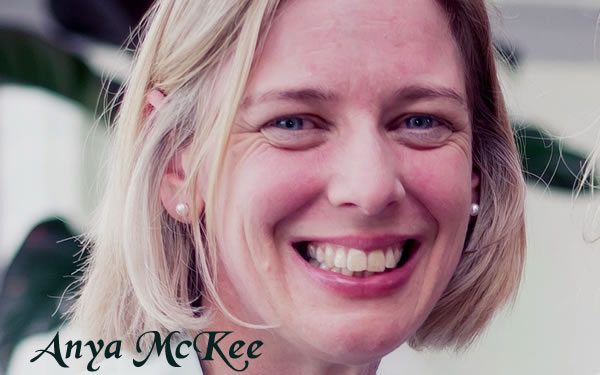
by Guest Author | 26 Aug , 2016 | Women as One
Anya McKee lives in Palmerston North. In this edition on ‘Share Your Story’, Anya shares her background and how that has led to her ministry, books, public speaking, retreat and teaching projects. We trust you will be inspired!
Keep up to date with Anya by liking her Facebook page
I came to God as a child, very aware of sin, Jesus’ sacrifice and the need to be ready to meet Jesus. It was simple, and it got me started. However, it was later in life that I began to wonder if Christianity actually overpromised and under delivered. I knew God loved me, but didn’t feel His love. I knew my sins were forgiven, but seemed powerless to overcome even basic issues in my life—issues like lies, anger, meanness. I believed Jesus could heal but had never seen it with my own eyes. Most of all, I knew the Gospel promised joy, and yet I was miserable on the inside.
I figured the problem was not with God or His promises, and so the issue had to be with me – and yet I had no idea how to move forward. Thankfully, I had a strong heritage in hearing God’s voice, responding in faith and being on the cutting edge of where God is moving. So despite feeling like I never quite got it together, God has continually positioned me for Kingdom effectiveness in all sorts of countries, churches, teams and ministry environments.
However, it was only five years ago that the Holy Spirit met me in the most gentle yet determined way, as I poured out my heart before him, opened my ears to listen to His voice, and brought to Him my desperation. It took three weeks, but by the end of that time, wounds I never knew I had were healed, strongholds I never knew existed were broken, and I was alive! Joy and love for Jesus flooded my soul, and suddenly, in place of frustration and disillusionment, I knew the Gospel was, in fact, more glorious than I had ever realized.
I want to see, in my generation, one corner of the earth after another becoming just the way God intended. I want to be part of a move of God where people are set free, worship is exuberant, faith-filled lives are the norm, and communities of honour and extravagant love grow in a way that can only be attributed to God’s Spirit.
My personal calling is to empower and equip God’s people to operate as effectively, naturally and confidently in the spiritual realm as we do in the physical, and at the moment I do that through writing, speaking and nurturing spiritual confidence in others.
Part of that is an incredible message God gave me for women called “The Story of the Daughter of Zion.” Essentially it’s the story of all humanity, personified as a woman. Her story goes from confidence to brokenness and shame, and then on to restoration beyond her wildest dreams. It’s a paradigm-shifting story, woven right throughout the Bible, and it provides God’s people with a compelling call to spiritual maturity.
In April this year, I and a wonderful team of friends shared the Story of the Daughter of Zion (DOZ) for the first time here in New Zealand. We hosted a day-retreat for fifty women, who came from around the country for a day of friendship, worship and theological storytelling. We had drama and dance, a wonderful hospitality team who took the day to a whole other level, and a couple of incredibly anointed songs written by New Zealand women. My hope is that this story would be heard all over the world, and that as a result, God’s people would unite in fresh passion for His presence.
I’ve developed a couple of follow-on seminars (‘Life in Black and White’ and ‘Alive in Two Worlds’) which help Christians make sense of the world and their lives, and equip people to make a difference by spiritual means.
And of course, there’s been lots of sharing our lives with people who are keen to move forward in their faith. We love to come alongside people who are ‘stuck’ in one way or another, and to lead people through that. So lots of prayer.
Where have I seen God working already in this area? Firstly in the lives of those who have worked with me. I always say the people are more important than the project, and there have been many times we’ve put planning and preparing aside to pray into areas of brokenness or stagnation in our own lives before we continue. We want to be surrounded by songs of deliverance – people experiencing breakthrough and testifying to what God is doing in their lives and families.
Secondly, in bringing a string of amazingly talented people into my life who share my passion to take the Daughter of Zion presentation to another level. I’m so thankful for these friends who band together to help me practically.
Coming up next is packaging the Story of the Daughter of Zion as a resource for the Church. We’re looking into filming the Story in individual scenes, in a format that can be used in home group and individual settings. And we’re planning a Young DOZ version which will address the issues faced by teen and young adult women.
I’ve also got two books in the pipeline – one is the Daughter of Zion story, and the other is called “Feels like I’m Breathing,” which are my raw journals, a word for word account of all I said to God and what he said to me, when he led me into a whole other level of freedom. In effect, it’s my personal ‘Daughter of Zion’ story.
And lastly, a website, where I’m preparing to share my own experiences and write from my heart about how operating spiritually looks in real life.
I think I’ve always been a leader at heart, but I was certainly insecure in that early on. It’s only been in recent years that God spoke to me from Hebrews 10:35 “Do not throw away your confidence; it will be richly rewarded.” I would never have been described as a confident child, but in Christ I have found clarity and confidence in who He has made me to be. That’s been essential in terms of leadership growth.
Two factors stand out in my journey into leadership. Firstly, the people who have recognized the anointing and gifting on my life, and have facilitated that in some way. I am so grateful to those people – my Sunday school teachers who got us memorizing chapters of scripture, my high school chaplain who entrusted the leadership of our Christian group to me and my friends, the pastor who sat under a tree one day and taught a group of us young adults how to study the Bible, and the many women around the world who have responded to my speaking with such tenderness. And then there’s John Marquet – the vicar at All Saints Palmerston North, who gave me my first formal role in a church staff team and many opportunities to preach and lead. I will never take that for granted. And especially my family who have released me, facilitated me and cheered for me all the way.
The other aspect of my leadership journey has been a commitment to being faithful in the season we’re in, combined with relentlessness looking to the future. I’m convinced that if there’s one attribute of the Holy Spirit, it’s that He moves. So being faithful in the moment, but always expectant about what’s next.
I sense God is asking me to remember the generation before me. There are so many women who once had great dreams for God, who have been silenced or disheartened or just lacked the help they needed to get going. I don’t think God has abandoned them. He’s saying we need to make way for women in their 50s and 60s who are being restored.
He’s also inviting me to cultivate a life in His presence. Recently I’ve been opening the Bible on my piano and singing it out in prayer, sometimes in prophetic worship, just making up the tune and literally singing a new song to the Lord. It’s my way of building up my soul and loving on Him.
And I also sense Him saying, get up on your feet. It’s easy for me to read, study, mentor people over a coffee … But he’s saying that if I want to enlarge my spirit, I need to get out into large open places – go for a walk in the mountains, get out by the sea, look up to the vastness of the sky, head out for dinner and laugh with friends – that sort of thing.
I have a mentor/friend who I skype with regularly. She leads in a large international ministry team and juggles many weeks of travel every year, yet every time I connect with her, she’s got something fresh to share with me from her time with God that morning.
I’ve been blessed by great teaching and encouragement from incredible speakers, writers and worship leaders around the world. But at the end of the day, as a woman in leadership, I must get into the Word, get into His presence, and receive first-hand from God. That’s my challenge and desire every day.
Do I have any concerns or things I’d like others to know about… specific things that the women of NZ and the South Pacific can pray for?
Just this: We need to know the time of our visitation.
For decades, the Church in New Zealand and our region around has been praying for revival. I believe we’re seeing it right now, in our generation—a great, global, redemptive move of God here, in our land.
So this is not a time for praying small prayers or inward looking. We need to rise above small country, small community, small ministry thinking. If we’re going to keep up with God in this season, we’ll have to embrace a bigger vision than we have before. We need to ask greater things of God than we’ve dared to before. And we need to position ourselves to be caught up in a move of God that’s far bigger than ourselves.
-Anya
To keep up to date with Anya, like her Facebook page or send her an email




